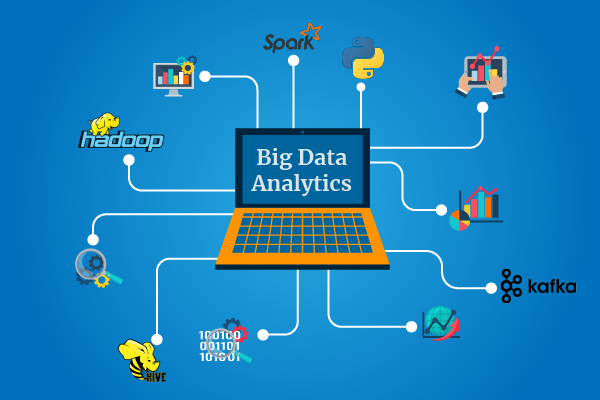Upskilling and keeping abreast of the trends in our respective domains are undoubtedly essential steps to professional growth. However, balancing work, life, and education comes with its own set of challenges such as the paucity of time, the difficulty of adapting learning to one’s specific domain, and budget constraints.
To that end, online education has enabled working professionals to continue learning and expanding their repertoire of skills. With a boost from artificial intelligence, online education is becoming a fast, flexible, affordable, and dynamic way to learn new skills. Online bootcamps help professionals learn on-demand skills on the go and open the window to lucrative job opportunities.
Table of Contents
Traditional learning: a challenge to balance work and study
Despite the obvious benefits of continuing to study while working, many professionals find it difficult to juggle their work and personal lives along with their education. The conventional academic education programs don’t cut it anymore as professionals prefer learning that fits around their busy schedules. There may be many hurdles for working learners who are also employed:
Time constraints: Taking out the time to attend classes and study often proves challenging along with full-time jobs and personal responsibilities. A full-time job does not leave the time to attend to the demands of conventional in-person education programs.
According to a study by Josh Bersin, a working professional can only spare 24 minutes of their work week for learning. As a result, these learners require a faster pace than what traditional education can offer.
Fixed or generic course curriculum: Traditional courses are designed to appeal to a wider demographic. This tends to limit their applicability to specific industries, domains, and profiles. Thus, traditional programs may not necessarily provide exposure to relevant expertise. According to a report by Think Impact, 91% of working professionals show a preference for employee-specific training and consider it more advantageous.
Limited options: Factors like one’s budget, proximity, and commute determine what programs and instructors are available for learners. Other than relocating, a learner may not have the option to access the best-quality programs in their domain.
Expenses: Education programs, especially brick and mortar ones, can be quite expensive. The costs include not just tuition fees but also those related to transportation, relocation, food, textbooks, etc.
Fewer opportunities to practice the learning: It is crucial for professionals to be able to apply their learning in their work. Historically, educational programs have relatively fewer actionable components for practice.
AI has levelled up learning with personalization
Many of these challenges are now being tackled thanks to the progress in artificial intelligence. Just like the industrial revolution, AI has proven to be a revolutionary force in most of the industries. It is constantly leading to transformations in how we study and work, giving us better insights by processing massive data, performing intelligent searches, and enabling personalized services.
This trend is visible in the education domain as artificial intelligence has given a boost to the already burgeoning online education industry. AI-driven online education has created new opportunities for self-paced learning and has improved access to education for not just full-time students, but also working professionals.
AI can quickly process and curate the most relevant educational material tailored to each student’s unique needs, provide instant feedback, and create opportunities to practice and apply one’s learning to specific industries.
How online learning may empower professionals
Online education, with the assistance of developments in AI, has filled many of the gaps experienced by professionals:
More available options: With as little as an internet-enabled laptop or phone, learners can access innumerable programs offered by various experts in diverse fields. This has served to bridge geographical distance and its attached costs. As per a paper by KPMG, traveling expenses alone can account for about 60% of training costs.
Personalized and adaptive learning: Thanks to artificial intelligence-based learning systems, learners can now design their own path through self-paced and personalized learning. AI systems are now able to specifically adapt to each person’s unique needs and provide a tailored learning environment, thus offering a leaner and more relevant experience. For instance, an AI-based adaptive learning program can assess the student’s strengths and weaknesses and create a plan that focuses more on addressing these gaps.
Real-time feedback: One of the most benefits of AI-driven education is the chance to get feedback on demand. Education now is not merely about absorbing information but about learning by doing. This helps professionals to actively monitor their progress and modify their education plans based on personalized feedback.
Flexibility: Online education enables one to set their own pace and gives them more control over their routine. This makes it easier to balance the demands of work, personal life, and education. Further, this balancing act has the potential to enhance people’s management skills.
Cost and time efficiency: Due to automation and less material costs, online education has often been proven to save people more time and money. For instance, as per a Brandon Hall Group study, online learning takes 40 to 60% less time compared to in-person learning. Since it offers more options in terms of the medium of education like videos and audio, learning has become a lot more optimized.
Tech proficiency: Since online learning necessitates the use of technology, it helps learners enhance their tech skills and introduces them to new tools. In fact, even tech skills like coding have become more accessible than ever since they do not require college degrees in tech.
Professional growth and prospects of salary increase: Keeping up with the latest developments and learning new skills and technology is now easier than ever since AI has made the whole process of developing educational materials and designing courses quicker. Consequently, professionals can significantly accelerate their growth and target better and more rewarding positions. Online bootcamps also offer assistance in finding jobs.
Opportunities to connect with other professionals: Since we can now access learning programs from across the world, there are a lot more opportunities to connect with other professionals in the domain and learn from their varied experiences.
These are some of the most exciting times for skills education, as cutting-edge technology has considerably widened the scope for professional development. With the help of AI-based e-learning, employees can leverage industry-specific expertise, learn in-demand skills, and boost their job prospects in truly flexible and affordable ways. What’s more, online learning is helping professionals bridge the skills gap by enabling everyone, including people from non-tech fields, to pick up helpful technical skills that give them an edge.
Author Bio:
Anjani Vigha is a technical as well as creative content writer at Thinkful, a Chegg service. She is an outgoing person, and you will find her near books, arts and explore the miraculous world of technology. Connect with her on LinkedIn or Twitter.





